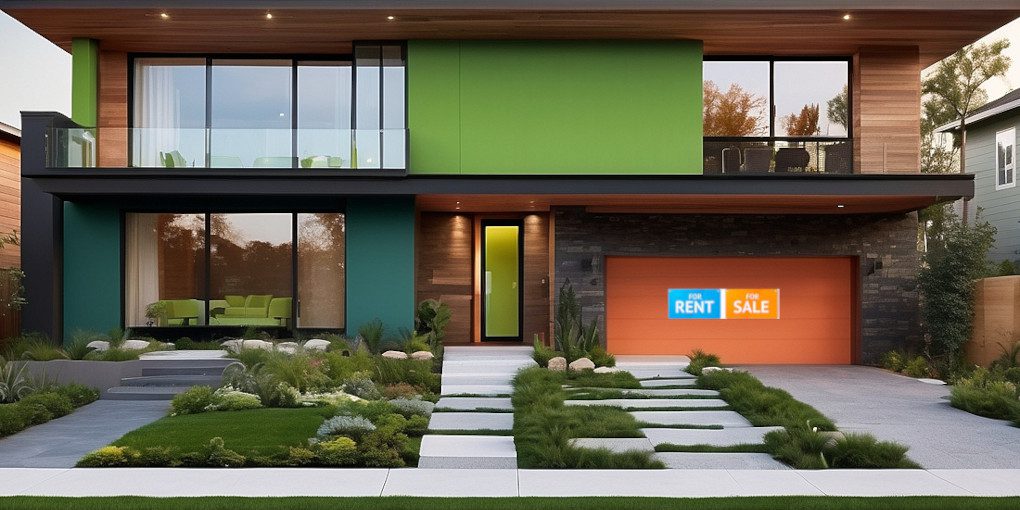– Buy or rent a property? What is the best option?
Considering whether to buy or rent a property is akin to navigating a labyrinth of decisions, each intricately woven into the fabric of one’s life.
An informal question I asked a colleague during on a casual Friday gathering sparked a discourse that resonated deeply within me, prodding the depths of my understanding and experience in finance.
– Buying is always the best option – he said without blinking.
I was so shocked by the almost instantaneous response. Of course I wanted to know because the answer was given and I received another question in response in a very indignant way.
– Don’t you agree with that? He said with a look of astonishment.
Yet, within this seemingly simple assertion lay the complexity that defines this quandary. The response didn’t surprise me; what intrigued me was the swift indignation that followed my dissenting perspective.
The truth is, the answer to this question—buy or rent—exists within a context, an intricate web of personal circumstances, aspirations, and financial prudence. It’s a subject that, despite my years of immersion in financial landscapes, continues to defy a singular stance even in my experienced mind.
Well, to begin with, and this is in the sense in which I gave my answer, it “depends”. And that depends a lot.

The complexity lies not solely in the nature of the property transaction itself but in the individual contemplating this pivotal decision. It’s not just about acquiring a piece of real estate; it’s about architecting a life plan. Considerations must extend far beyond the structure of the property itself.
In essence, the initial step of this contemplation should revolve around introspection, examining one’s life’s blueprint. When you start to analyze this situation, it is not just a simple real estate deal, but a life plan. Yes, of course, unless you present yourself in a very favorable situation where you are just increasing your equity as an investment. But I still believe it fits into this same logic of thought.
Its about treat thinking about the future, at first you should think about structure, I’m not talking about the house or apartment, but about your own structure. Let’s say how are you planning? What comes to mind is whether you thought about family or living alone. If you thought about family, how many members are you likely to have in your family? What is your means of income? How much do you earn? What education do you have? What are your plans for five years from now? Ten years? By the way, do you have a plan? These and other questions I ask myself before focusing on a property.
What appears ostensibly simple to some becomes an intricately woven tapestry of considerations for the few. Surprisingly, this mode of thinking is intrinsically linked to the dichotomy of wealth and poverty that prevails in society.
Observing closely, it’s evident that a minority holds an expanse of wealth while the majority grapple with less. This disparity, I believe, often stems from the absence of coherent planning. Many mistake envisioning the future for planning; picturing a house, a yard, a certain lifestyle isn’t planning—it’s merely a dream.
Distinguishing between dreams and plans is pivotal. Planning inherently involves a fundamental query—how do I sustain what I aim to create? It aligns akin to accounting principles—revenue balanced against expenses.
Many take into account that thinking about the future is the same as planning, that thinking about getting married, having two children, living in a big house, with a yard with green, trimmed grass is planning. No, this is definitely not planning.
Therefore, the purchase of property necessitates a meticulous evaluation of one’s present capacity, future structure, and unforeseen exigencies.
A simple example that I like to give is the following: if you intend to live alone, have a job that involves traveling between cities, a property acquisition might not align seamlessly.
Each acquisition demands a bespoke evaluation, viewed through the lens of future intentions. What might seem a triumph at the moment could transmute into a formidable challenge.
Much like the intricate maneuvering in judicial management, every property case is distinct. Converting property to liquidity demands time, rendering it inherently illiquid.
I must clarify that my intent isn’t to dissuade property acquisition but to advocate for cautious, individualized handling. Post-acquisition, expenses burgeon, altering one’s financial pace. An acquisition mustn’t morph into a liability; it must remain an asset.
There are many authors of books with renowned names, in fact, I haven’t found any who say otherwise, who argue that any property you buy to live in is not a liability.
I don’t completely agree with this statement. Again I come back to my impartial side of “it depends”. There’s a dichotomy here that warrants deeper examination—a subject that warrants its own comprehensive discourse.
In forthcoming articles, I intend to delve into this, providing insights and guidance to aid in decision-making processes.
If the prospect of property acquisition piques your interest, I implore you to await these future discussions. My hey not to deter but to illuminate, facilitating informed decisions that foster financial growth.
Building a robust financial asset demands a blend of awareness, conscientious decision-making, and an adaptive.
